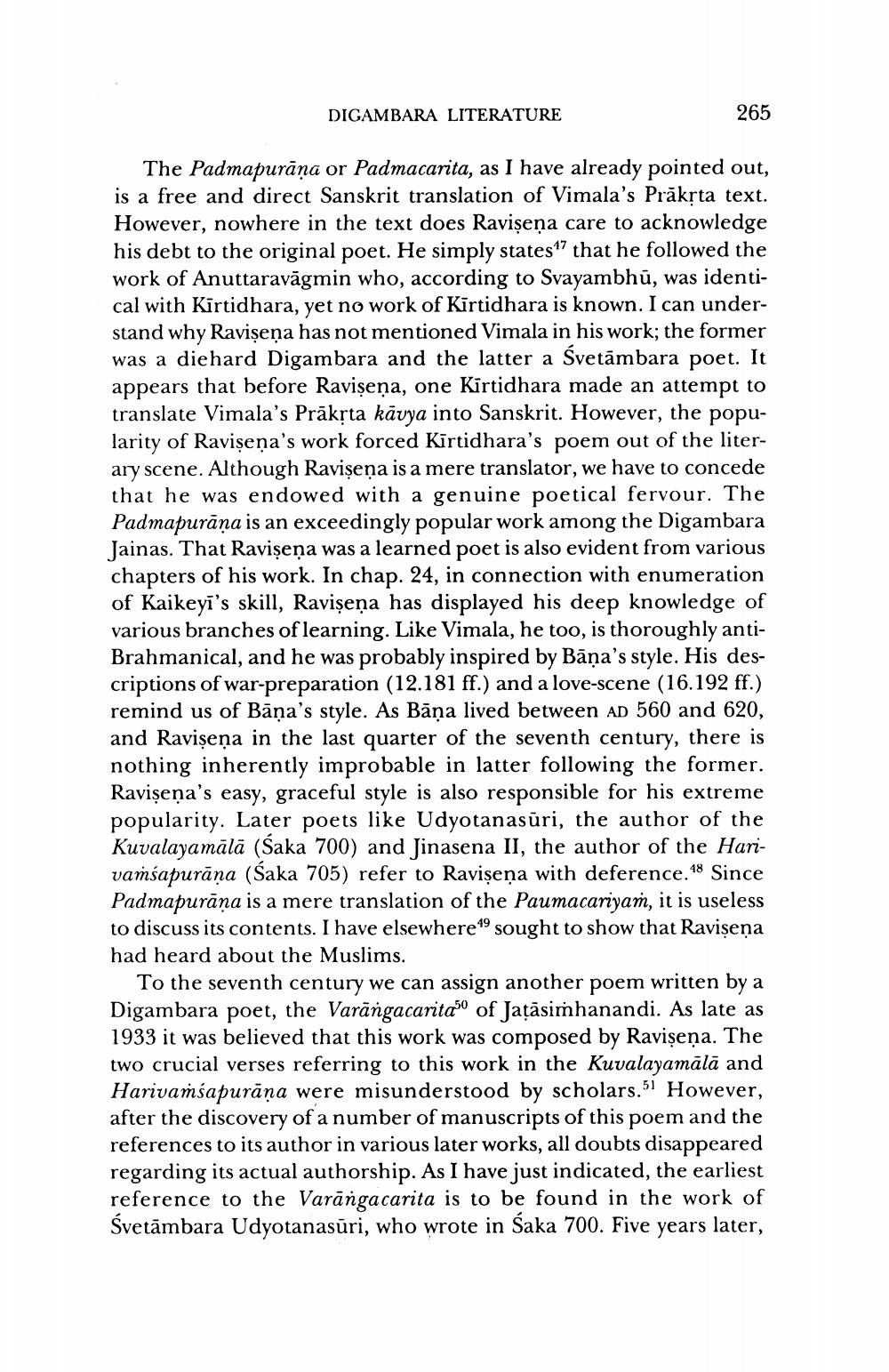________________
DIGAMBARA LITERATURE
265
The Padmapurāna or Padmacarita, as I have already pointed out, is a free and direct Sanskrit translation of Vimala's Prāksta text. However, nowhere in the text does Ravişeņa care to acknowledge his debt to the original poet. He simply states that he followed the work of Anuttaravāgmin who, according to Svayambhū, was identical with Kirtidhara, yet no work of Kirtidhara is known. I can understand why Ravisena has not mentioned Vimala in his work; the former was a diehard Digambara and the latter a Svetāmbara poet. It appears that before Ravisena, one Kirtidhara made an attempt to translate Vimala's Prākrta kāuya into Sanskrit. However, the popularity of Ravişeņa's work forced Kīrtidhara's poem out of the literary scene. Although Ravişeņa is a mere translator, we have to concede that he was endowed with a genuine poetical fervour. The Padmapurāna is an exceedingly popular work among the Digambara Jainas. That Ravişeņa was a learned poet is also evident from various chapters of his work. In chap. 24, in connection with enumeration of Kaikeyi's skill, Ravişeņa has displayed his deep knowledge of various branches of learning. Like Vimala, he too, is thoroughly antiBrahmanical, and he was probably inspired by Bāņa's style. His descriptions of war-preparation (12.181 ff.) and a love-scene (16.192 ff.) remind us of Bāna's style. As Bāna lived between AD 560 and 620, and Ravisena in the last quarter of the seventh century, there is nothing inherently improbable in latter following the former. Ravişeņa's easy, graceful style is also responsible for his extreme popularity. Later poets like Udyotanasūri, the author of the Kuvalayamālā (Saka 700) and Jinasena II, the author of the Hari vamśapurāna (Saka 705) refer to Ravisena with deference. 48 Since Padmapurāna is a mere translation of the Paumacariyam, it is useless to discuss its contents. I have elsewhere9 sought to show that Ravişeņa had heard about the Muslims.
To the seventh century we can assign another poem written by a Digambara poet, the Varāngacaritało of Jațāsimhanandi. As late as 1933 it was believed that this work was composed by Ravişeņa. The two crucial verses referring to this work in the Kuvalayamālā and Harivamsapurāņa were misunderstood by scholars. 5. However, after the discovery of a number of manuscripts of this poem and the references to its author in various later works, all doubts disappeare regarding its actual authorship. As I have just indicated, the earliest reference to the Varāngacarita is to be found in the work of Svetāmbara Udyotanasūri, who wrote in Saka 700. Five years later,




